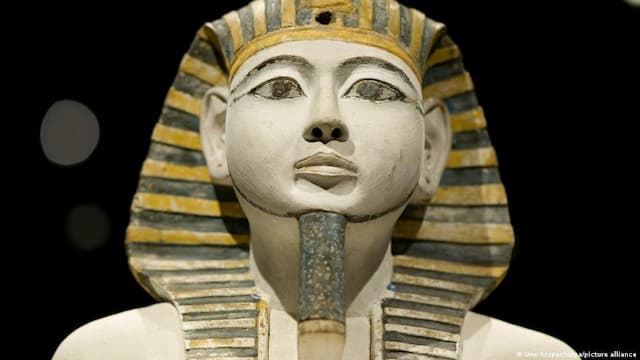Feeling guilty (Matthew 5:27-28)
Jesus’ words about murder and adultery made everyone feel guilty. Why did he do that?
Open Matthew 5:27-28.
You can always find religious people who make you feel guilty. Most of the time, Jesus did not condemn the crowds, only to the religious leaders. But there was a moment in Jesus’ mountain-side sermon when he made everyone feel guilty.
Loosely paraphrased, this is what he said:
You don’t think of yourselves as murderers? Remember that time when you were angry enough to smash someone’s lights out? You’re a murderer alright. And you should be judged for it. Judgement could come from a human court, or from God. You’re guilty.
You don’t think of yourself as an adulterer, but what about that person who moved into your village? What were you thinking? You’re an adulterer, and you should be judged for it. Don’t wait for God or the court to give you what you deserve. Take out the punishment on yourself! Pull our own eye out, or chop off your own hand. You’re guilty! You’ve failed to observe the Big Ten, the basic commands, the foundation Israel’s existence as God’s representative kingdom.
If Jesus intended to induce guilt in his hearers, he succeeded. For 2000 years, people have shuddered at his words. Augustine’s Confessions is an early example that is still read today.
Why did Jesus do this? It’s not what he normally did. We don’t read about him condemning prostitutes for thinking about how to gain custom, or condemning tax collectors for thinking about who to rip off. Sure, he pointed out the guilt of the religious leaders, but he did not usually accuse the people like this. Why does he do so here? The context provides the answer.
Jesus has been proclaimed as Israel’s anointed king (3:1-17). He has faced and repelled Israel’s enemy (4:1-11). He announces good news of God’s kingdom being restored (4:12-25). In his kingdom, those who’ve missed out will have joy (5:1-12). But Israel’s existing leaders did not think he was Israel’s king. If he was, he would not be disregarding the Torah: he would be demanding his people obey the Law. Jesus responds to this accusation by accusing them, condemning the condemners, heaping guilt on those who heaped guilt on Israel. His point is that their guilt-game never can lead the people back into God’s kingdom reign (5:20).
Jesus takes on the Pharisees and Torah lawyers at their own game. They want to impute guilt? He can do that too. They want to condemn the people? Jesus can do that too. He speaks condemningly to the people. They don’t think they’re murderers? They’re guilty and should be judged. They don’t think they’re adulterers? They’re guilty and should judge themselves.
He’s right, of course. Murder grows out of anger, and adultery grows out of fantasies. God wants a people who are genuinely obedient, not just outwardly compliant. Jesus is prosecuting a strong case.
But the real target of his remarks is not the crowd of people who feel poor in spirit, who mourn, the meek, those who long for justice to be done. No doubt they all feel their guilt, but what he really wants to say is, “You’ll have to do better than these Torah lawyers and Pharisees or you’ll will never have God’s reign restored” (5:20).
The king is publicly humiliating the judges of Israel. The point he’s making is that instead of heaping guilt on the people, Israel’s rulers should be judging themselves for their on-going failure to restore God’s kingdom.
So, yes: Jesus is correct in pointing out how humans fall short of what the heavenly king expects of us. But please do not use these verses as a way to heap guilt on people in general. If you do, you’re not doing what Jesus did. You’re actually acting like a Pharisee or lawyer, the very people whose ammunition Jesus turned against themselves. You point the accusing finger but three more fingers point back at yourself.
The exception would be if you were dealing with some self-righteous religious leader who trades in guilt. In that case, go ahead and do what Jesus did. Point out to them how impossible are the expectations they place on others. Abusive guilt-mongers are the right target for this approach. Even then, you’d probably want to do that with tears in your eyes for those who want to kill you. According to Matthew 23, Jesus still grieved over them even after his tirade against them.
We’re not what we think we are; but what we think, we are.
What others are saying
S. B. Narramore and J. H. Coe, “Guilt,” in Baker Encyclopedia of Psychology and Counseling edited by David G. Benner and Peter C. Hill (Grand Rapids, MI: Baker, 1999), 534:
Much confusion has been created by the failure to make these subtle distinctions concerning objective/subjective guilt and neurotic guilt/constructive sorrow. For example, theologians have sometimes been alarmed by psychologists’ efforts to eliminate neurotic guilt feelings because they were not aware that psychologists wanted to replace these punitive feelings with healthy, love-based moral motivations. Similarly, some psychologists have mistakenly viewed Christianity as a neurotic, guilt-inducing religion because of its stress on humanity’s guilt before God. Rejecting the notion of true objective guilt before God, psychologists often understand guilt feelings in a completely naturalist, reductionistic sense and fail to recognize our true moral natures. Moreover, some Christians have unfortunately failed to differentiate between neurotic guilt feelings and godly sorrow and have assumed that all feelings of guilt are Holy Spirit induced when, in fact, they may be the result of failed human relationships and false internalized standards.
[previous: Reconciliation or retribution?]
[next: Ripping out an eye?]
Seeking to understand Jesus in the terms he chose to describe himself: son of man (his identity), and kingdom of God (his mission). Riverview College Dean
View all posts by Allen Browne











